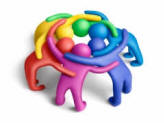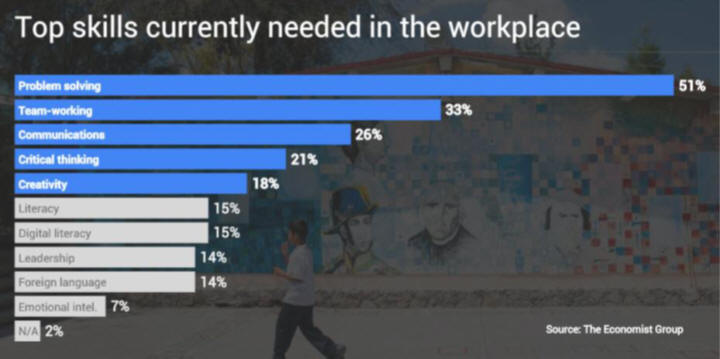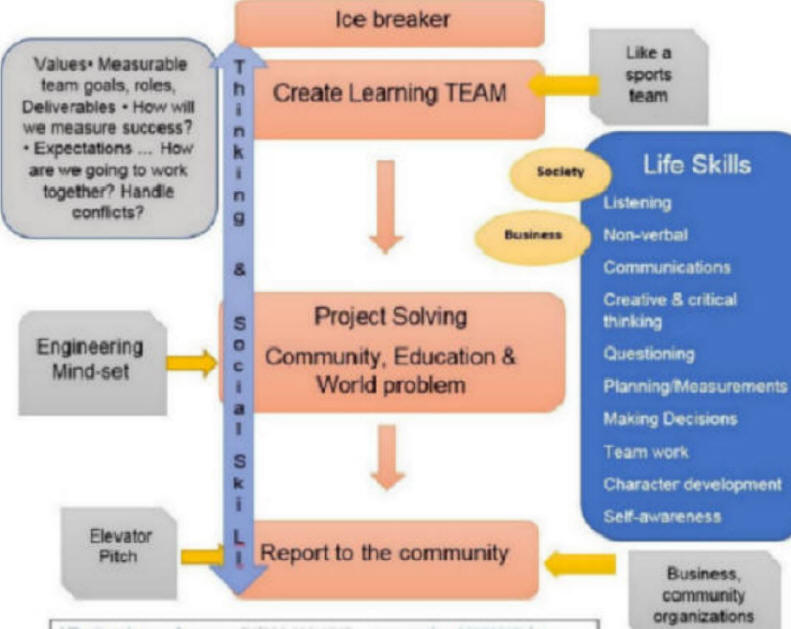Questions


| Student Buy-in |
Tasks:
| Ice-Breaker |
| Team creation |
| Select problem |
| Problem solving |
| Testing-Reporting |
Documents:
| Engineering mind-set |
| 5E Instructional model |
| Improv |
| Question types |
| Skills & Process |
| Soft-skills |
| SEL learning |
| Creating a game process |
| Ideas for new ways |
Games/ Improv
| Cups |
| Ring-the-bell |
| Improv-team sport |
| Improv-business |
| Job-interview |
| Character-ex |
| Learn from Geese |
| Take away note-cards |
| Try-This |
| 3- Pigs |
Support for returning -workers
| Overview |
| Resume |
| Resume-advice |
| Elevator pitch |
| See games/Improv above |
| Soft-skills |
| Dr. Deming |
| Mike Hammer |
| Interview process |
| Team work |
| Engr. mind-set |
| Developing a Brand |
| Key Attributes |
Pre-employment training
| Overview |
| Syllabus |
| Business focus |
| Employee plan |
| 6-Hats |

Project Academy
|
Learning using the Questioning process … The student's have to own the process. Its not the teacher asking the question.
Pick a text, picture or video to have the students look/read at about the subject we want them to learn. After they complete to task, ask them the following: · What question do you want to ask about this Text, Video, Picture? · What excited you, or made you sad about what we discussed? Involve the group … Do they agree or have other questions or thoughts? · What question comes to mind as you consider this painting/text?
Video on this process of showing an article and writing questions you have to learn a subject
Want to create a dialogue with the group about what the student is curious about.
Need to teach of students about the different levels of questions like the Bloom Taxonomy
Goals for the group: Develop the methods, definitions and writing of “how a learning team operates”; How to problem solve; Creating reporting system The Outcome: · Operating principles of a learning team · Create a team charter · Written procedures and processes for a team · Defining the team’s culture
Tools: · You can use any resource to find information ( Web, books, people, etc.) · You can work together to create your thoughts · You need to write your thoughts as a group · Your group will discuss and present your thoughts at the end of the project How to begin: · Follow the attached flow chart and develop your answers to the questions or thoughts. · Do your best as there is no one right answer. Its what you make of it. · Think of and define the following life skills: Listening skills. Non-verbal skills, planning and goal setting, controlling your emotions, how to deal when you have a dis-agreement with others. Empathy for others, o Create an index card with a two sentence description for the skill o Try to implement the skill in your everyday activity o Reflect on your growth or lack of growth · When learning about a new subject as a team, we use various questions to gather information:
|
||||||||||||||||||||||||||||||
|
Instructions: This learning process starts with a group of between 5-8 individuals, who will work together starting with an ice-breaker, then forming a learning team, followed by selecting a problem, working on solving the problem and finishing up with a testing and reporting activity to the community. During these tasks, life-skills will be infused in the process.
The expected outcomes are as follows:
|
||||||||||||||||||||||||||||||
|
|
||||||||||||||||||||||||||||||
|
|
||||||||||||||||||||||||||||||
Short Learning Projects (PDF Documents) ...Background/setup
 |
 |
Soft-Skill web sites
| SkillsUSA | Applied Education |
| Monster | |
Build Your Brand |
Glass-Door |
| Feel Good sites: Sayings | |
| Pre-employment documents | |
| Learning-life-goals | Need for an engineering mind-set |
| Research on the need-life-skills | Skill-gap is serious |
| Skills make you more employable | XO learning outcomes |



